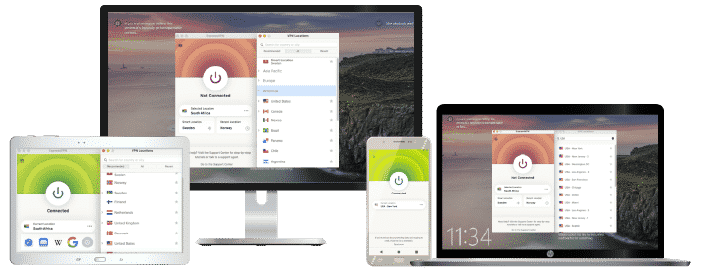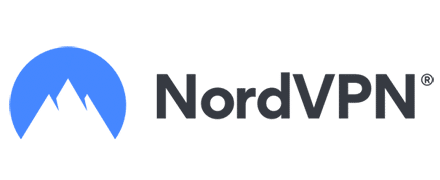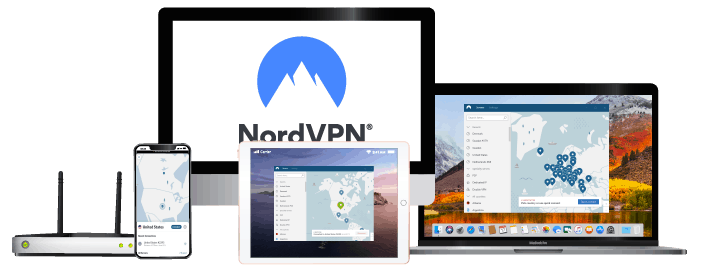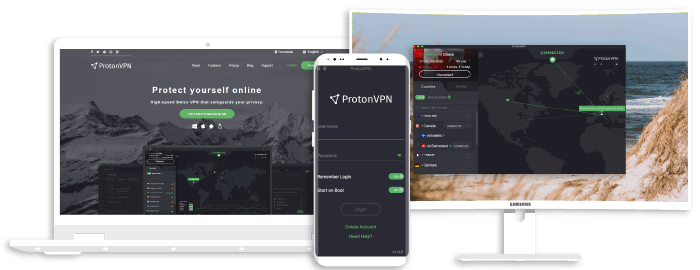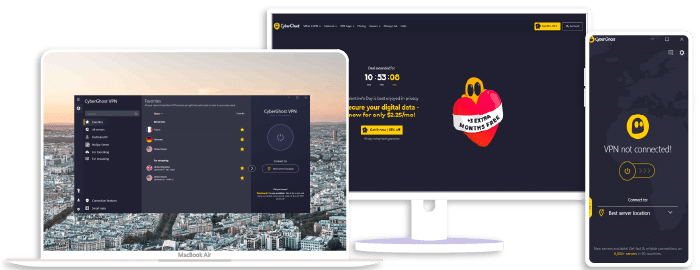How to Bypass Internet Speed Limit by Service Providers?
You’ve probably been there: you’re in the middle of an intense episode on Netflix, and suddenly your Internet speed drops. Or maybe you’re trying to download a large file and it’s taking forever. You suspect that bandwidth throttling is at play, a method used by many ISPs like Spectrum, Comcast, and Centurylink to regulate network traffic.
ISPs throttle your bandwidth when you’ve consumed a certain amount of data within your billing cycle. They limit your Internet speed, forcing you to either endure the snail-paced connection or upgrade your package. It helps them manage network congestion and gives them the opportunity to charge more for higher bandwidth packages.
But don’t despair! There are ways around this frustrating issue. In fact, VPNs like ExpressVPN, NordVPN, or Surfshark can help bypass these speed limits imposed by service providers. With a little knowledge and the right tools, I’ll guide you towards uninterrupted streaming and faster downloads.
ExpressVPN
Overall score: 9.8
- 3,200 servers across 105 countries
- Works with streaming platforms
- AES 256-bit encryption
- Supports private protocol, Lightway
- Money-back guarantee
30-day money-back guarantee
NordVPN
Overall score: 9.6
- 8,700+ servers available in 129 countries
- Connect up to 10 devices simultaneously
- Great security features
- Verified no-logs policy
- Unblocks streaming platforms
30-day money-back guarantee
Surfshark
Overall score: 9.5
- 4,500+ servers in 100+ countries
- Allows unlimited simultaneous connections
- Integrates stealth mode
- Multihop feature available
- Webcam protection from unauthorized apps
30-day money-back guarantee
Proton VPN
Overall score: 9.4
- 17,250+ servers in 125 countries
- Free version available
- Strong security features
- Reliable no-logs policy
- Allows Perfect Forward Secrecy
30-Day Money-Back Guarantee
CyberGhost
Overall score: 9
- 9,300+ reliable servers in 100 countries
- 45-day money-back guarantee
- Strict no-log policy
- Tough security features
45-Day Money-Back Guarantee
Understanding Internet Speed Limits
Let’s dive into the world of internet speed limits. They’re essentially a limit set by your Internet Service Provider (ISP) on the amount of data that can be transferred over your internet connection within a certain period. These limits are often imposed to prevent network congestion, or in some cases, to encourage customers to upgrade to higher-priced plans.
You might find yourself asking: “Can I bypass these annoying speed limits?” The answer is yes! And one reliable way is through using a Virtual Private Network (VPN). VPNs like ExpressVPN, NordVPN, and SurfShark act as intermediaries between your device and the internet. Your ISP sees only encrypted traffic heading towards the VPN server and can’t detect what websites you’re visiting or throttle specific types of traffic.
Here’s how these top three VPNs stack up:
| ExpressVPN | NordVPN | Surfshark | |
|---|---|---|---|
| Features | High-speed servers, Strong encryption techniques, No-log policy. | Double data protection with CyberSec technology. | Unlimited bandwidth with CleanWeb feature. |
| Ease of Use | User-friendly interface across all devices. | Easy setup with automatic updates. | One-tap connect feature for quick access. |
Now let’s address some frequently asked questions about this topic:
- How do I get around bandwidth throttling? Using any premium VPN service such as ExpressVPN, NordVPN or SurfShark makes it easy. It encrypts your internet traffic and routes it through its own servers – making it difficult for your ISP to identify or throttle specific types of traffic.
- Is it illegal for an ISP to throttle? The legality varies from region to region. Some countries have regulations against ISPs throttling internet traffic while others may not. Always check local laws before proceeding.
- Can ISPs still throttle my connection if I use a VPN? It’s possible but unlikely. High-quality VPNs like ExpressVPN utilize advanced encryption techniques that make detecting VPN usage more challenging for ISPs.
To summarize – slow speeds due to bandwidth throttling are frustrating but there’s something you can do about it! With high-quality VPN services like ExpressVPN, NordVPN and Surfshark at your disposal – you can say goodbye to slow loading times and buffering videos! However remember this isn’t foolproof; ISPs might still detect and throttle in some cases but chances significantly decrease when using these tools.
Techniques for Bypassing Internet Speed Restrictions
Experiencing slow internet speeds due to bandwidth throttling can be a real pain. But don’t fret! There’s a solution: using a virtual private network (VPN). This clever tool encrypts your internet connection and masks your browsing location, effectively bypassing any speed limits imposed by your ISP. I’ve found that ExpressVPN offers fast, uninterrupted internet speeds without the fear of ISP meddling.
You might ask “How do you get around bandwidth throttling?” Well, it’s simple with a premium VPN service like ExpressVPN or NordVPN. These services encrypt and reroute your internet traffic, making it seem as if it’s coming from elsewhere. This makes it trickier for ISPs to throttle specific types of traffic.
The question about the legality of ISP throttling often comes up too. It’s important to note that this varies depending on where you live. Some countries have laws against ISPs throttling internet traffic while others don’t regulate this practice at all. Always check local regulations before taking action.
It is indeed possible for ISPs to throttle VPN traffic but there are ways around this too! A good quality VPN like Surfshark uses encryption and other technologies that disguise the fact you’re using a VPN – thereby preventing throttling.
In conclusion, if slow internet because of ISP-imposed bandwidth throttling is an issue for you, consider investing in ExpressVPN, NordVPN or SurfShark as they offer solid solutions. They help bypass Bandwidth Throttling by encrypting your Internet connection and masking your browsing location.
However, bear in mind that using a VPN isn’t guaranteed to solve all issues; some ISPs may still detect and throttle VPN traffic under certain circumstances. Regardless, these tools can significantly improve your online experience when faced with pesky speed restrictions!
Wrapping Up: Navigating Internet Speed Limitations
Dealing with slow internet speeds due to bandwidth throttling can be frustrating. One solution that’s proven effective is using a virtual private network (VPN). It encrypts your internet connection and masks your browsing location, effectively dodging the speed limits set by your ISP.
My top recommendation is ExpressVPN. This VPN provider offers both speed and security, ensuring you enjoy an uninterrupted surfing experience, free from ISP slowdowns.
FAQ
So how exactly do you get around bandwidth throttling? With a premium VPN service like ExpressVPN or NordVPN, it’s simple. These services not only encrypt but also reroute your internet traffic. The result? Your online activity appears to come from somewhere else entirely, making it tough for ISPs to single out specific types of traffic for throttling.
But is it even legal for ISPs to throttle in the first place? Well, that answer depends on where you live. Some countries have regulations prohibiting ISPs from controlling internet traffic speeds; others don’t have such laws in place at all. That’s why I always advise checking local guidelines when considering this issue.
And what about those who’ve already installed a VPN – can they still be subject to throttling? The short answer is yes. However, high-quality VPNs like Surfshark employ advanced encryption techniques that make it hard for ISPs to detect their use—significantly reducing the chance of experiencing slowed down connections.
To sum up everything we’ve covered here: If you’re tired of suffering through slow internet brought on by ISP bandwidth throttling, turning to a reliable VPN like ExpressVPN could be just the remedy you need! By following our guide above, fast and smooth-sailing online navigation can finally be within reach!
However, keep in mind that while employing a good VPN often helps against ISP limitations—it isn’t foolproof—ISPs may still manage to detect and throttle even VPN-protected traffic occasionally. Regardless of this slight caveat though—a quality VPN remains an essential tool if improving your overall online experience is what you’re after
Join the TechRobot Newsletter
Actionable tips on online security, the best VPNs, unblocking guides, and special offers — straight to your inbox.

